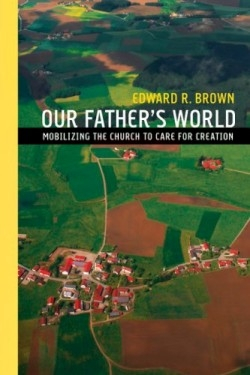Our Father's World
Mobilizing the Church to Care for Creation
In his now famous 1967 essay, “The Historical Roots of Our Ecological Crisis,” scientist Lynn White laid the blame for the modern environmental predicament squarely at the feet of Christianity. White argued that the Christian religious traditions must bear a huge burden of guilt for the destruction of the environment because of Christianity’s teachings that humans not only transcend the natural world but also have mastery over it. White observed that traditional Christian interpretations of Genesis 2-4, in which God commands Adam to subdue the earth and rule it as lord, provide the foundations for Christian views that allow Christians to mismanage the environment.
Although White’s charges have been answered by various Christian groups over the years, most notably Process theologians who interpreted the same Genesis passages to emphasize humans as caretakers and co-creators, evangelical Christians had largely ignored the ecological crisis, focusing their theological attentions on political issues such as abortion and school prayer that emphasized individual rights and not the value of the planet. In the mid-1990s, however, almost three hundred evangelical leaders signed “An Evangelical Declaration on the Care of Creation,” which stated that Christians should cherish and care for creation because of their love and worship of the Creator.
In this eloquent call to action, Edward R. Brown, the former chief operating officer of the Au Sable Institute, a Christian environmental organization, offers both a theological reflection on the necessity of Christian activism in preserving the environment and a handbook of ecological practices that individuals and churches can take up to make a difference.
The environmental crisis is a global crisis, Brown observes, and the solutions to it must be biblically-based and arise out of God’s concerns for humanity and the earth. “Every person is precious in God’s sight…All have a right to live, to know their Creator…Every human being should be able to live and eat and love and worship.” The degradation of the environment prevents humans from living with such dignity.
Brown offers suggestions for churches to practice creation-centered activities that encourage individuals to worship God’s creation as a facet of the Creator. “Creation-oriented Worship will bring creation into the worship experience…Creation-oriented Worship will take worship outdoors.” A series of appendices provides historical evangelical Christian documents related to the environment, suggestions for further readings, and lists of resources for churches and individuals.
Brown’s elegant book brings to brilliant life the new Christian concern with the environment.
Reviewed by
Henry L. Carrigan
Disclosure: This article is not an endorsement, but a review. The publisher of this book provided free copies of the book to have their book reviewed by a professional reviewer. No fee was paid by the publisher for this review. Foreword Reviews only recommends books that we love. Foreword Magazine, Inc. is disclosing this in accordance with the Federal Trade Commission’s 16 CFR, Part 255.

